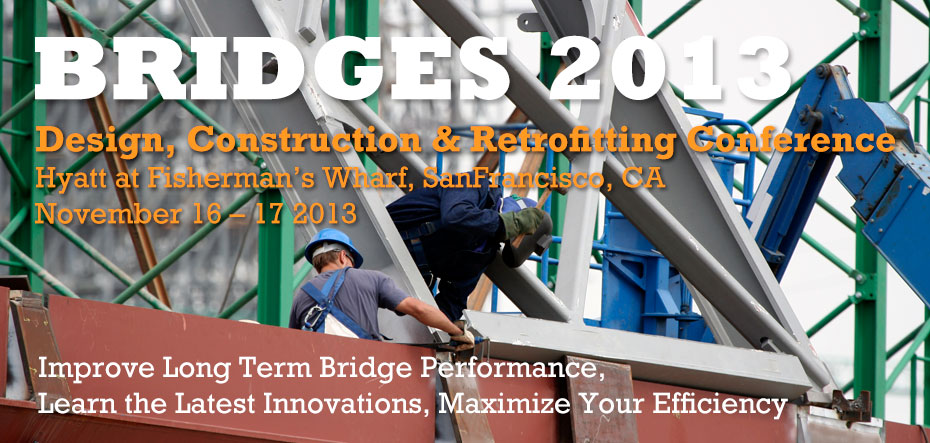
Networking & Refreshment Break
Examining The Blueprint For Surface Transportation Investment And Reform
- Providing an update on state transportation spending levels
- Reporting and showing lessons learned form Recovery Act implementation
- Discussing the state of current surface transportation and bridge funding, including Federal Highway Trust Fund conditions
- Providing AASHTO’s funding and financing framework for the next six years
- Giving the latest update on current program extensions and SAFETEALU reauthorization
- Joung Lee Associate Director for Finance and Business Development, Aashto
Innovative Design Techniques And Building Sustainable Bridgest
- Developing bridge concepts considering project requirements, site condition, available materials, constructability and maintenance
- Paying close attention to aerodynamic stability and human induced vibration if unique structural system is used
- Creating better structural design with the help of 3-D modeling
- Developing lighting scheme to enhance nighttime appearance
- Designing construction sequences with consideration of contractors’ capabilities
- Ignacio Barandiaran Project Director, ARUP
Implementing Best Practice Maintenance Regimes For Bridges
- Ensuring your operational costs remain balanced and minimizing costs of up keeping the infrastructure.
- Ensuring the value of your asset remains economically sustainable
- Outlining maintenance procedures that are necessary to mitigate a major accident or hazard
- Implementing modern maintenance and engineering practices to improve the bridge infrastructure
- Taking a long term approach to asset maintenance and identifying appropriate service levels to improve your decision making
Learning From Shake Table Tests Of Three, 110'-Long, 4- Span Bridge Models With Conventional And Innovative Materials
- Three bridge models each supported on three, two-column bents were tested under simulated earthquakes to failure
- Bridge-abutment interaction was included in the tests using hydraulic actuators at the ends of the bridge
- The earthquake motions simulated the 1994 Northridge earthquake
- Conventional reinforced concrete piers were used in one bridge model, but the other two incorporated innovative materials such as shape memory alloys, fiber concrete, built-in elastomeric pads, glass and carbon fiber composites, and precast columns
- Dr. Mehdi Saiidi Professor, Department of Civil and Environmental Engineering, University of Nevada, Reno
End of Conference